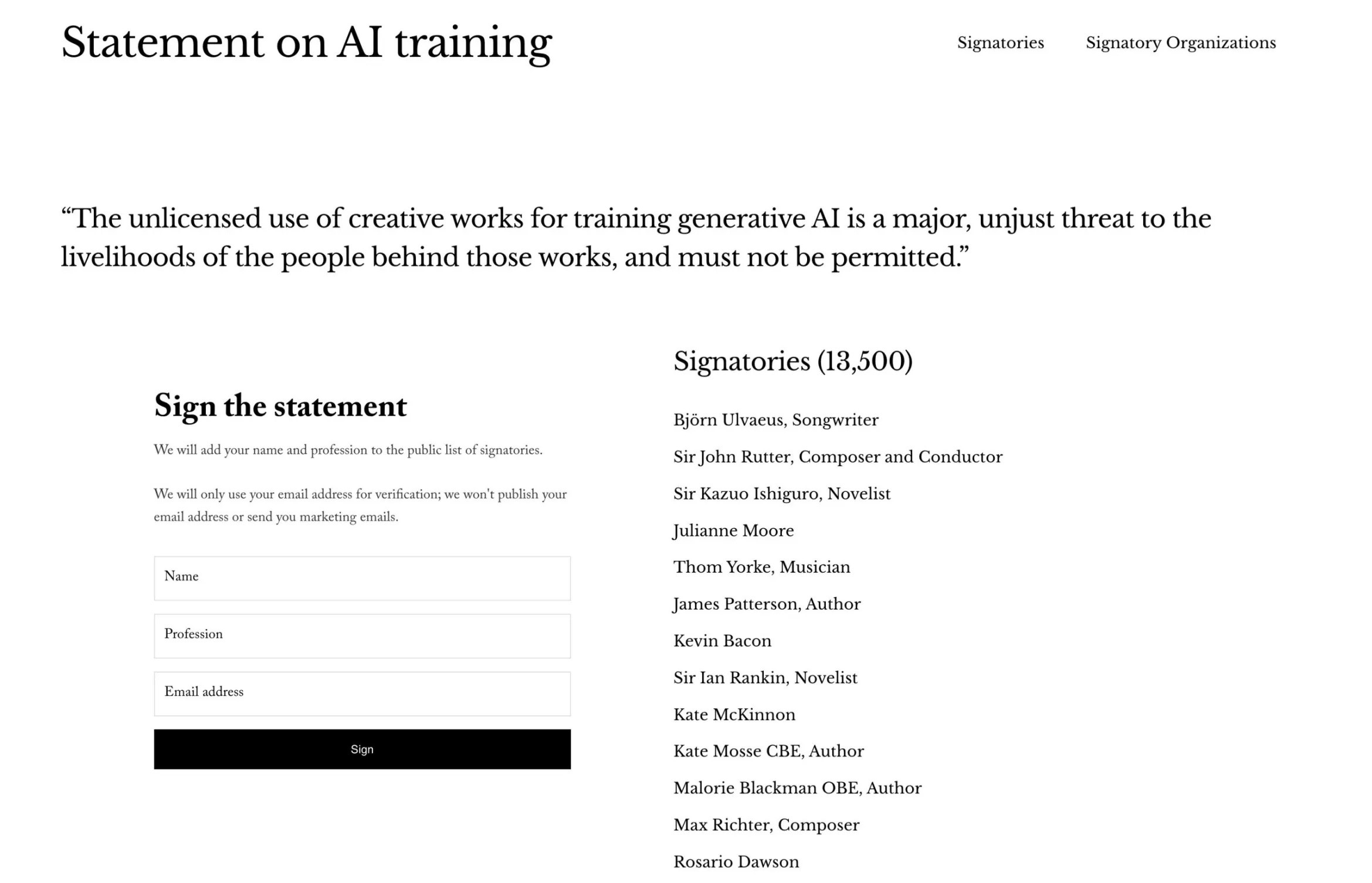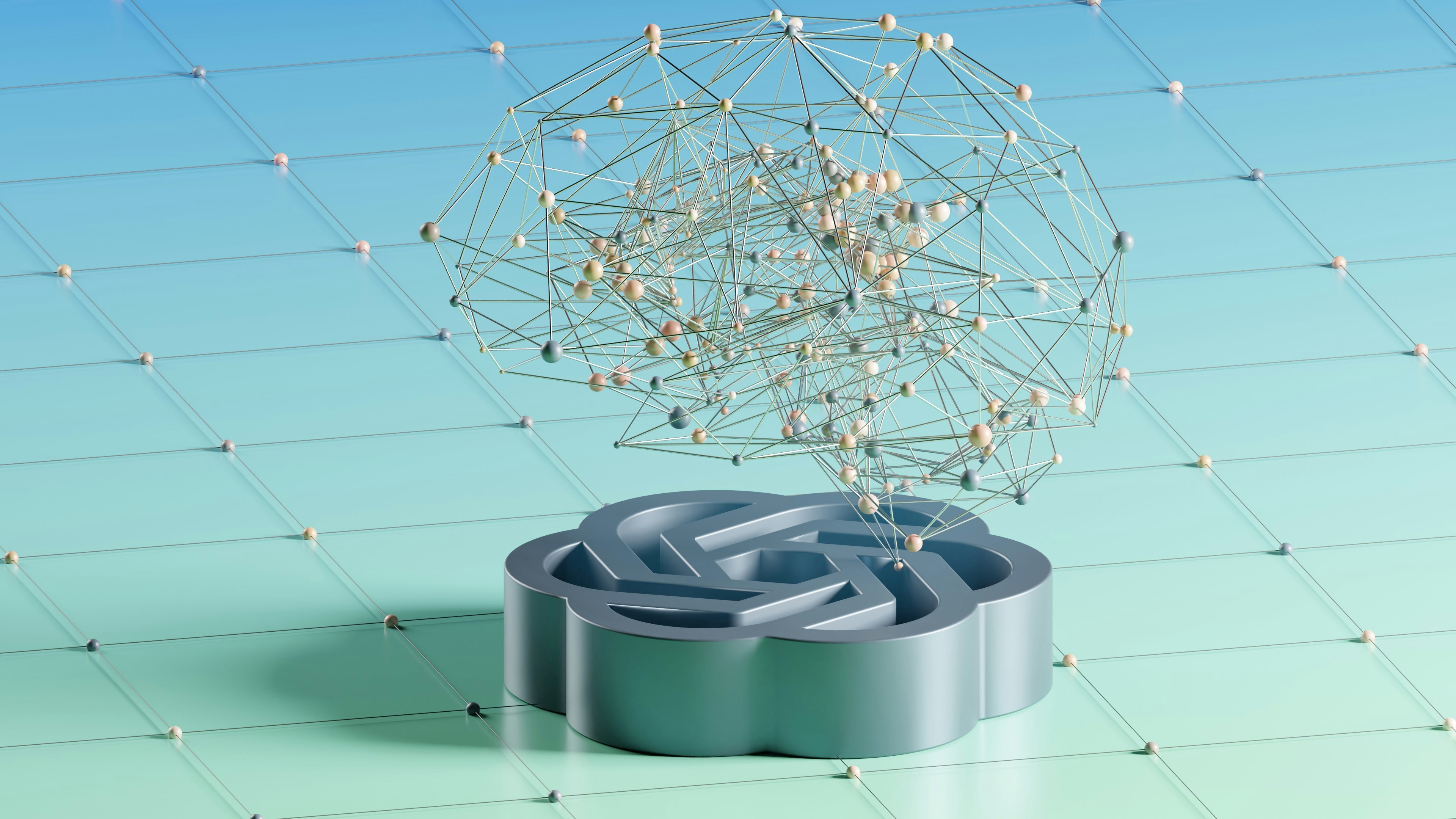19,000+ creatives voice shared concern over AI training
A growing number of creatives have signed a public statement against the unlicensed use of creative works for AI training.
A growing movement of over 19,000 creatives – including musicians, novelists, and writers – is voicing concerns about unlicensed AI training and its potential to threaten their livelihoods. At the forefront of this issue is a statement signed by these creatives, calling for legal and ethical restrictions on AI companies using copyrighted works for training without proper permissions.
“The unlicensed use of creative works for training generative AI is a major, unjust threat to the livelihoods of the people behind those works, and must not be permitted.”
One of the key driving forces behind this effort is the Human Artistry Campaign. This coalition, formed to safeguard human creativity, emphasises that while AI can be a powerful tool, it must be implemented in ways that respect creators’ rights. What’s being fed to AI for training isn’t just data, as Newton-Rex, co-founder of Vochlea Music, pointed out, but rather “People’s work – their writing, their art, their music”. The campaign argues that AI training using copyrighted material without licensing is akin to exploitation, threatening the entire creative ecosystem.

The statement outlines several key principles, many of which focus on ensuring that AI companies obtain proper licensing before using creative works for training purposes. Ali Condon, head of policy at PRS for Music, emphasised the importance of licensing and protecting creators from being pushed out of the value chain by AI. “Music isn’t data, it’s not a bunch of numbers to be crunched to find patterns and advance science. It’s human expression.”
The campaign also advocates for transparency from AI companies, demanding that creators and copyright owners remain at the forefront of decisions around how their work is used. The fear among creatives is that governments could create loopholes or exemptions that allow AI developers to bypass traditional copyright protections, leaving creators with little to no control over their work’s usage.
As noted in PRS for Music’s article on the Human Artistry Campaign, AI has long been a part of the music industry, from guitar pedals to synthesisers. However, as Newton-Rex and others stress, the distinction is that human creators have always driven innovation in music, using tools like AI as an extension of their own artistry. Now, without proper regulation, AI could reduce creators to mere data points to train machines.
Ultimately, this movement underscores a pivotal moment in the creative industries. Artists are not completely against AI, but they demand a seat at the table in policymaking. As technology continues to rapidly evolve, the Human Artistry Campaign is working to ensure that human creativity remains central and that the value of art, beyond just its data, is respected.
This debate will certainly continue as technology evolves, but for now, creators are speaking up, determined to defend their rights and their future.
